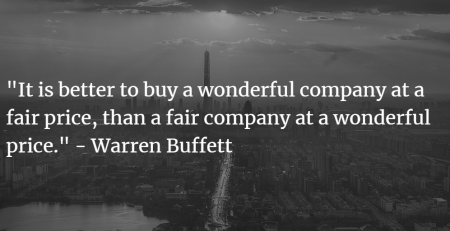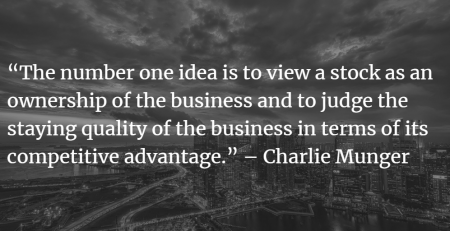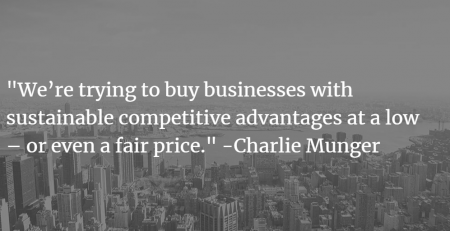Ocado: Stock update
Ocado Group PLC (OCDDY) is our worst performing (in price terms) position so far this year. However, even while Ocado’s stock has fallen, our conviction that the underlying business continues to create real shareholder value has only increased. As a result, we recently increased our position at these lower price levels.
As a brief reminder, Ocado is a technology company masquerading as a grocery retailer. They are the world leader in online grocery delivery – a market that is growing double digits in most countries around the world.
Purely online grocery shopping for home delivery is a complicated and difficult thing to solve for – which is why most incumbent grocers are remain loss making on this segment of their business. The reasons it is so difficult to achieve profitability in this space lie in three major complications relative to traditional logistics:
- Perishability: dealing with fresh fruits, vegetables and meat, you have to be extremely efficient with inventory management in order to:
- Reduce waste (Ocado wastes less than 1% of food)
- Deliver fresh items to customers
- Temperatures: all warehouses, handling and delivery must operate with 3 different temperature zones: ambient, chilled and frozen.
- Basket size: The typical grocery order contains 50+ items, far more than a normal ‘non-grocery’ online purchase.
Over the past 20+ years, Ocado has developed an efficient automated system that enables them to not only operate grocery delivery profitably, but even more profitably than traditional brick and mortar grocery. Currently there are no legitimately comparable competitors in this space, which is an indication of just how hard it is to get this business model right.
Today, Ocado consists of two main segments: a profitable and growing UK grocery retailer (purely online, effectively the proving ground for their technology), and an international business where they license their technology for other retailers around the world to use. This second part of the business is where most of the value of the business lies. This international licensing business only began a few years ago, but since then Ocado has signed partnerships with some of the biggest retailers across the world, in the USA, the UK, France, Canada, Japan, Sweden, Australia and others. Ocado receives an upfront fee for building and setting up each warehouse (called a CFC: customer fulfilment center) and then they receive an ongoing royalty fee of around 5% of the capacity of said warehouse.
This licensing business is nascent right now – they have 58 CFCs contractually committed around the world (a number that is consistently growing). Currently, only 16 are operating, and 11 of those have opened in just the last few months. As a result, we are now only just at the very beginning of seeing any revenue coming through for this business at all.
The stock market typically doesn’t like to look ahead and give much credit for things that don’t exist, and so, Ocado has been punished for the amount of money they’re spending on capex now to build all of the CFCs, without much regard to the revenue they’ll create in the future.
To be fair, the capex is a significant amount- right now the company is spending around $800m a year and will do so for the foreseeable future. And in an inflationary environment, being a big spender on capex is not a comfortable place to be, so it is something that is worth considering and thinking about carefully.
That said, the positive side of all of that capex is that in a few short years Ocado will find itself with a global footprint of the most advanced grocery warehouses on the planet, generating what we believe will be a secure ongoing revenue stream. Within the next five years or so, Ocado will have built around $20bn in order capacity, a figure that will bring in around $1bn a year in revenue. That $1bn a year in revenue should also come with around 50-70% margins. In other words, this business is likely to be a cash machine.
But today the business is loss making: the high spend to build all this capacity drains cash. This is likely to remain the case for the next 4 to 5 years. Though having recently raised almost $900m in equity, the company is now well positioned to fund the required spend all the way until cash flow breakeven.
It would be fair to assume that given the incredible security of the end market growth, a dominant competitive position, huge global contracts locking in demand well into the future, that this must be a stock that’s trading at an incredibly high valuation? Quite the opposite. Ocado was swept up with ‘covid- stay- at- home’ stocks during much of 2020, and subsequently sold off when the world began to return to work again. The valuation de-rating in Ocado so far during 2022 has been staggering, and in our view, un-warranted.
We often spend significant amounts of time undertaking detailed valuation work to model future cash flows and arrive at intrinsic value for businesses. But there are also rarer times when stocks become so cheap that little heavy work is needed to see the opportunity. Ocado trades today around 2x one year’s sales. Even though those sales are just from the UK business, not including any of the revenue that is going to appear from the international business in future.
To put some real numbers around this, the management team of Ocado have recently become far more transparent with us as investors, releasing more and more detail on the underlying business – something that for years they kept close to their chest. Based on conservative estimates, Ocado is a business that in five years’ time will be producing revenue of around $6.5bn per year, more than double the current run rate. Much of that growth is going to come from the international side, with 50-70% margins. As a result, EBITDA five years from now is likely to be more than 7 times what it is today. There aren’t many companies that are going to exhibit that much growth over the next five years. While traditional multiples aren’t much help to us today given the business is still loss making, we are looking at a stock that should provide significant capital upside over the next few years.
And the risks? Grocery is an incredibly stable industry – after all, people always need to eat. Online as a percentage of the overall mix is also a consistently growing portion for the fairly simple reason that it’s actually a far better customer proposition to order groceries online than almost any other item, due to the basket complexity, time it takes to shop, and the fact that most families buy the same things week in and week out.
So, really the risk comes down to competition and execution risk. Right now, there is barely any competition offering the same level of end-to-end service that Ocado does. And in terms of execution risk, they’ve been running these CFCs for years in the UK and proving they can do so profitably. Taking the same technology and setting it up in other countries involves some execution risk, but we believe it’s limited.
Ultimately, we believe that we’re being presented with a great opportunity today – a truly world class company with clear visibility to earnings growth and significant shareholder returns, offered at an inexpensive valuation. Many investors still believe that the stock market accurately assimilates all available information and values companies correctly – we would say that Ocado is proof that is not the case.
Disclosures: This website is for informational purposes only and does not constitute an offer to provide advisory or other services by GCI Investors in any jurisdiction in which such offer would be unlawful under the securities laws of such jurisdiction. The information contained on this website should not be construed as financial or investment advice on any subject matter and statements contained herein are the opinions of GCI Investors and are not to be construed as guarantees, warranties or predictions of future events, portfolio allocations, portfolio results, investment returns, or other outcomes. Viewers of this website should not assume that all recommendations will be profitable, or that future investment and/or portfolio performance will be profitable or favorable. GCI Investors expressly disclaims all liability in respect to actions taken based on any or all of the information on this website.
There are links to third-party websites on the internet contained in this website. We provide these links because we believe these websites contain information that might be useful, interesting and or helpful to your professional activities. GCI Investors has no affiliation or agreement with any linked website. The fact that we provide links to these websites does not mean that we endorse the owner or operator of the respective website or any products or services offered through these sites. We cannot and do not review or endorse or approve the information in these websites, nor does GCI Investors warrant that a linked site will be free of computer viruses or other harmful code that can impact your computer or other web-access device. The linked sites are not under the control of GCI Investors, and we are not responsible for the contents of any linked site or any link contained in a linked site. By using this web site to search for or link to another site, you agree and understand that such use is at your own risk.
All references and views offered including but not exclusive to any overall market commentary, asset class, attribution, outlook, valuation, potential returns, stocks, companies, business model, quality, outlook, management, valuation, execution, potential returns, investments, investment styles, market returns, expectations, forecasts or estimates and any other area of investing are the opinion of the manager and should not be taken as facts, projections or guarantees. All such opinions are subject to change are do not constitute a recommendation or solicitation to buy or sell a particular security.






